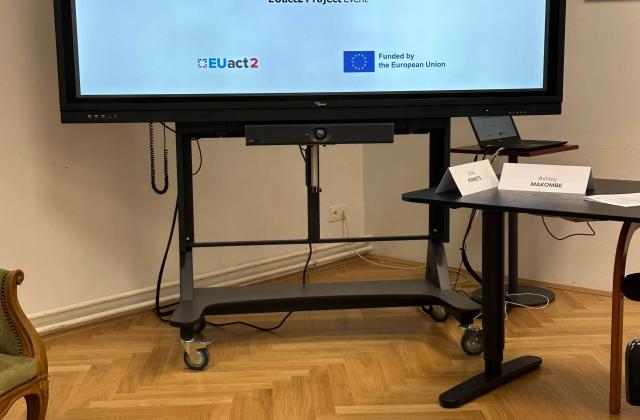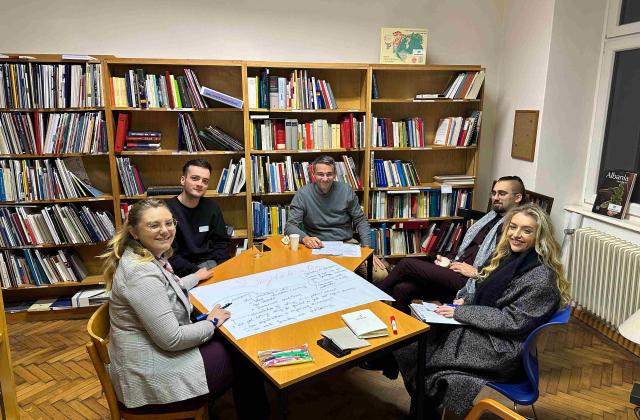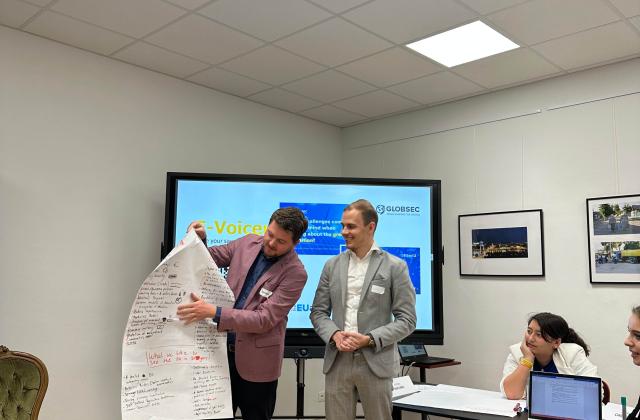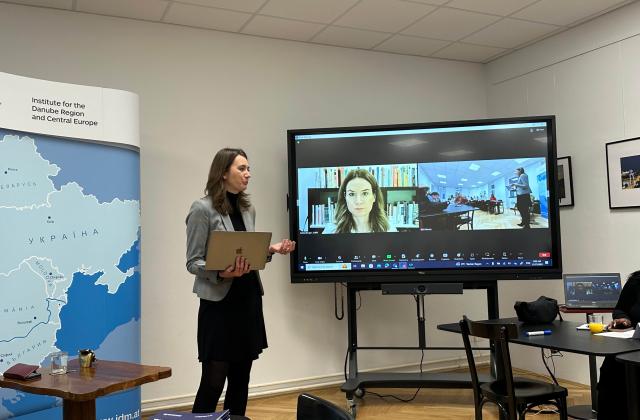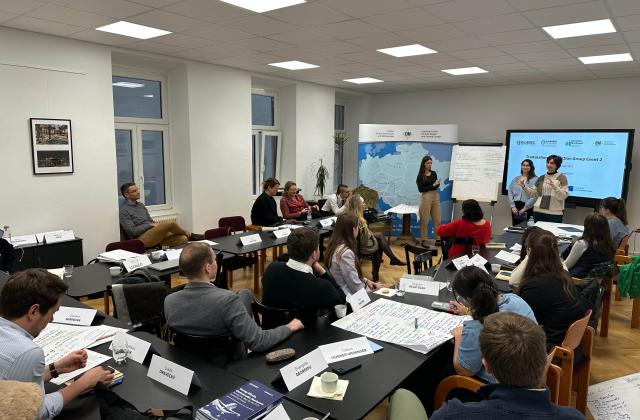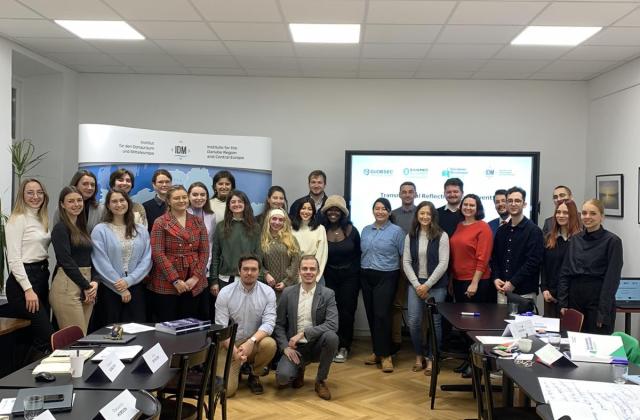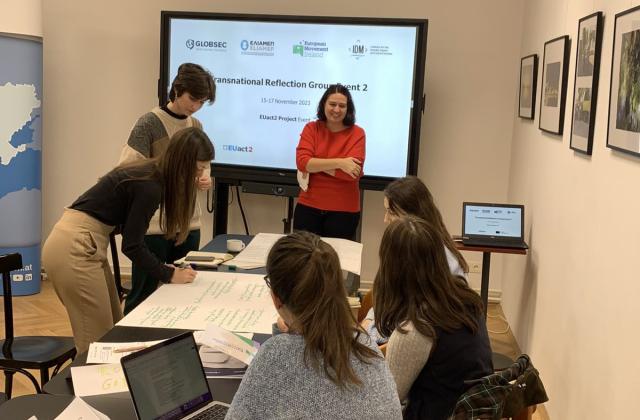Young Leaders Transnational Reflection Event 2: A Summary
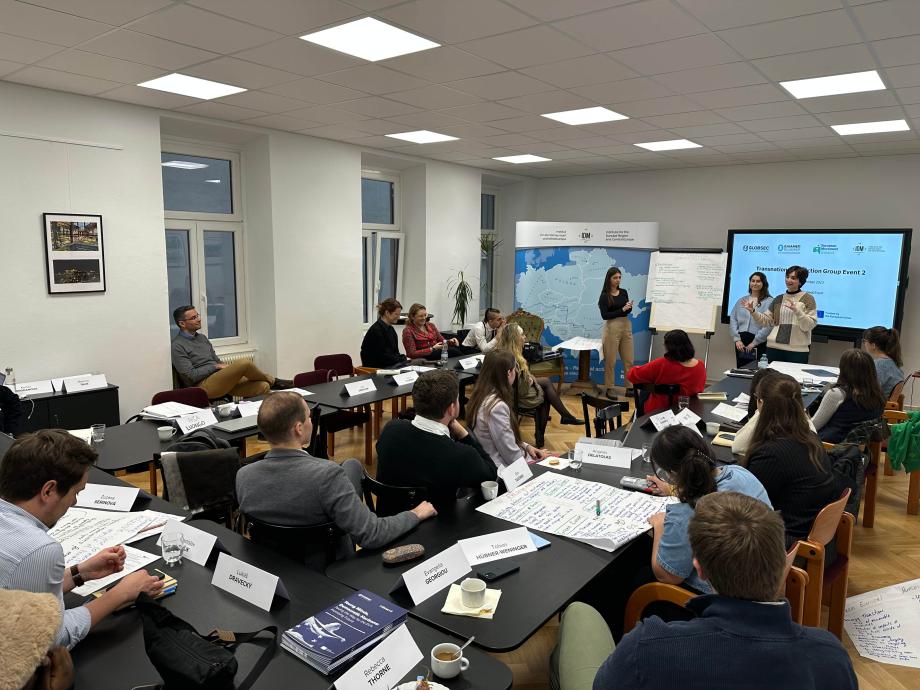
Between 15-17 November 2023, the second edition of the transnational reflection group took place in the framework of the EU-funded EUact2 project. This time the event took place in Vienna under the auspices of the Institute for the Danube Region and Central Europe (IDM) and in cooperation with GLOBSEC, ELIAMEP, and European Movement Ireland. The event gathered the opinions of 38 young leaders and professionals (26 women (68%), 12 men (32%)) from 12 Member States: Austria, Bulgaria, Czech Republic, Estonia, Germany, Greece, Hungary, Ireland, Italy, Poland, Netherlands, and Slovakia. The event focused on reflecting on four main areas of EU policies: EU Enlargement, Migration, Climate, and Digital today and up to 2040.
It included intense discussions, sharing different points of view, gathering of opinions and participating in working groups. The results led to the direct active participation of the young people in drafting practical recommendations which will become part of a Policy Recommendations Report delivered to local, national and EU policymakers.
The three-day event, included participation of the young leaders in a public event titled ‘Shaping Democratic Resilience in the European Union: The Future of European Democracy in the Eyes of Citizens.’ The opportunity was taken to present and further promote to the public the EUact2 report, ‘Young Minds, Democratic Horizons: Paving the Way for the EU’s Promising Future Attitudes of Young People from Austria, Greece, Ireland and Slovakia.’ The event was met with great public interest, which was also reflected in its attendance, exceeding 80 people and lively participation in the on-the-spot interactive polls. Many guests were particularly impressed by the honest views of the panelists on the current state of democracy, as well as the confidence they showed in young people.
Day 2 was spent focusing on four central themes: Enlargement, Migration, Climate, and Digital, which shaped the Vienna edition of the Transnational Reflection Group. Each of these four themes was introduced by a keynote lecture with an influential decision-maker or researcher. The talks were moderated in a way that ensured that 2/3 of the discussion was devoted to contributions from young leaders, who had the opportunity to express their thoughts and ask our guests a range of questions. The series started with a talk on EU enlargement with Katalin Huber, Head of the EU Enlargement Unit at the Austrian Federal Ministry for European and International Affairs. In her speech, Mrs. Huber provided our participants with institutional information on EU enlargement perspectives directly from behind the scenes of Austrian diplomacy.
After an introductory discussion, the young participants chose one of four thematic groups (enlargement, migration, climate, digital) to discuss the EU's successes and challenges related to the given topic. The two-hour brainstorming session was followed by a second keynote lecture on Digital Transformation, this time delivered by two speakers: Erika Piirmets, Digital Transformation Officer at e-Estonia, and Julia Haas, Media Freedom Advisor at the OSCE Representative Office. In their panel, the speakers presented the factors that have led to the success of digitalisation in Estonia and highlighted a number of implications that artificial intelligence could have for the media sector. The expert discussions concluded with a keynote on climate with Daniel Huppmann, Senior Research Fellow at the International Institute for Applied Systems Analysis. During the discussion, Mr. Huppmann drew on his solid analytical expertise as he explained the connections between various recent environmental phenomena caused by ongoing climate change. The second day concluded with presentations by the working groups.
Day 3 started with a final introductory lecture on migration with Judith Kohlenberger, a postdoctoral fellow at the Vienna University of Economics and Business. Mrs. Kohlenberger gave participants a comprehensive presentation on the current state of migration policies at the EU level and highlighted a number of issues that need to be addressed in this context in the coming years. This was followed by a brainstorming session in four thematic groups - this time focusing on what measures the EU needs to take in 2040 to be prepared to tackle all the mentioned areas. Several recommendations were advanced from each of these groups towards an upcoming report which is to be published next year as part of the EUact2 project. The experiences, informed opinions and needs of the young leaders shaped the recommendations, which intend to represent how global challenges can and should be addressed on a European level from the perspective of young people. The three-day event concluded with final group presentations and an open discussion among the participants.
